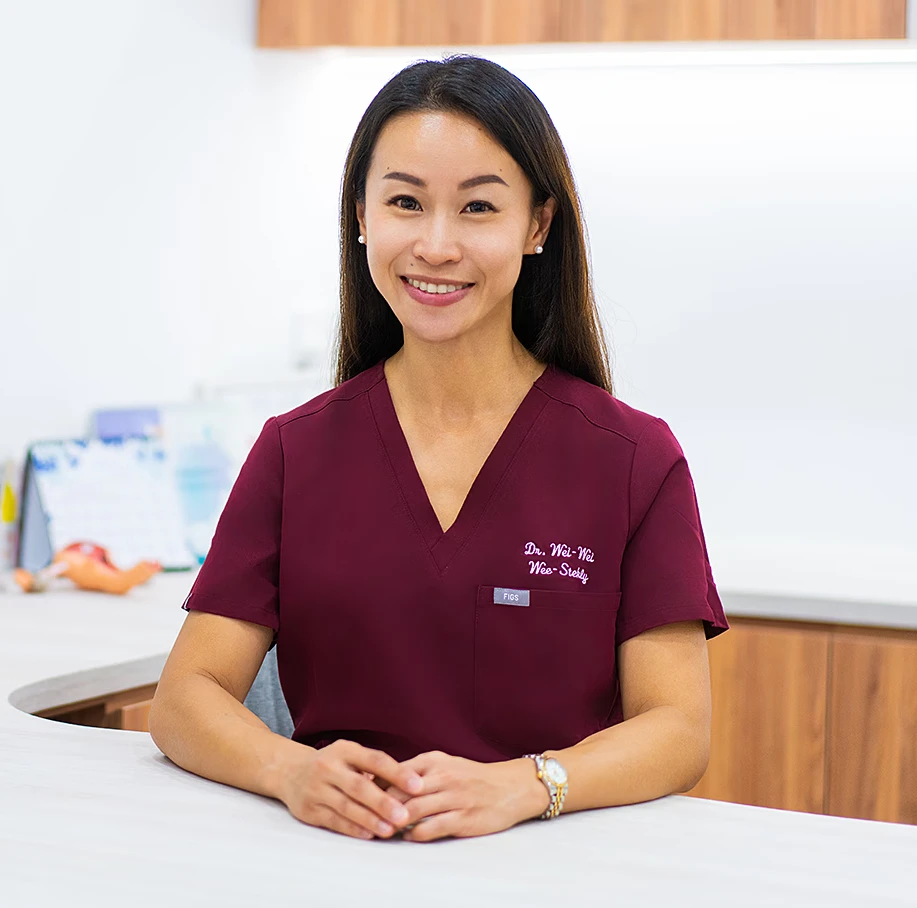Uterine Fibroids Treatment in Singapore

Uterine fibroids are one of the most common gynaecological conditions affecting women of reproductive age. While often harmless and symptom-free, they can sometimes cause heavy periods, pelvic pain, and fertility challenges. Here are the main things you should know about uterine fibroids.
What Are Uterine Fibroids?
Uterine fibroids, also known as leiomyomas or myomas, are non-cancerous growths that develop in or around the uterus. These growths vary in size—from as small as a seed to as large as a melon—and may occur as a single fibroid or in clusters. While fibroids are usually benign, they can lead to uncomfortable symptoms and may impact fertility or quality of life for some women.
Many women with fibroids experience no symptoms at all and may only discover them during a routine pelvic examination or imaging scan. However, for others, fibroids can cause significant pain, heavy bleeding, or pressure symptoms that affect the bladder and bowel.
What Causes Uterine Fibroids?
The exact cause of uterine fibroids remains unclear, but several factors are believed to contribute to their development:
- Hormones: Oestrogen and progesterone, the hormones that regulate the menstrual cycle, promote fibroid growth. Fibroids tend to shrink after menopause when hormone levels decline.
- Genetics: A family history of fibroids increases the likelihood of developing them.
- Age: Fibroids most commonly affect women between the ages of 30 and 50.
- Lifestyle factors: Obesity, a diet high in red meat, and low in fruits and vegetables may be associated with an increased risk.
What Are the Symptoms of Uterine Fibroids?
Symptoms can vary widely depending on the size, number, and location of the fibroids. Some women may experience:
- Heavy or prolonged menstrual bleeding
- Pelvic pain or pressure
- Frequent urination or difficulty emptying the bladder
- Constipation or bloating
- Pain during intercourse
- Lower back pain
- Fatigue due to anaemia (from heavy periods)
- Difficulty conceiving or maintaining pregnancy
The type of symptoms often depends on the fibroid’s location—whether it’s within the uterine wall, just beneath the lining, or on the outer surface of the uterus.
How Are Uterine Fibroids Diagnosed?
Fibroids are often detected during a routine pelvic examination when an enlarged or irregularly shaped uterus is felt. To confirm the diagnosis and assess the size and location of the fibroids, the following tests may be recommended:
- Pelvic Ultrasound: The most common imaging test used to visualise fibroids.
- Transvaginal Ultrasound: Offers a clearer view of fibroids inside the uterus.
- MRI Scan: Provides detailed images to evaluate fibroids, especially useful for treatment planning.
- Hysterosonography (Saline Infusion Sonography): Uses saline to expand the uterus and give a clearer ultrasound image.
- Hysteroscopy: A thin, lighted tube is inserted through the cervix to examine the inside of the uterus.
Blood tests may also be done to check for anaemia or to rule out other causes of abnormal bleeding.
When Should You See a Gynaecologist About Fibroids?
You should seek medical advice if you experience:
- Heavy or prolonged periods
- Pelvic pressure or bloating
- Difficulty with urination or bowel movements
- Pain during intercourse
- Trouble conceiving
- A known fibroid that is growing or causing discomfort
Early diagnosis and management can help reduce symptoms, preserve fertility, and improve quality of life.
Do Uterine Fibroids Affect Fertility or Pregnancy?
In many cases, fibroids do not interfere with fertility or pregnancy. However, depending on their size and location, some fibroids can:
- Block the fallopian tubes
- Distort the shape of the uterus
- Affect embryo implantation
- Increase the risk of miscarriage or preterm birth
Women with fibroids who are planning to conceive should discuss their reproductive goals with their gynaecologist to determine whether treatment is necessary before pregnancy.
What Are the Treatment Options for Uterine Fibroids?
Treatment depends on the severity of symptoms, size and location of the fibroids, age, and whether future fertility is a concern. Options may include:
1. Watchful Waiting
If the fibroids are small and not causing symptoms, regular monitoring may be all that’s needed.
2. Medications
- Hormonal Therapy: Birth control pills or hormonal IUDs can help manage heavy bleeding and pain but won’t shrink fibroids.
- GnRH Agonists: These medications temporarily lower estrogen levels, causing fibroids to shrink. They are usually used short-term before surgery.
- Tranexamic Acid or NSAIDs: Help control bleeding and reduce pain during menstruation.
3. Minimally Invasive Procedures
- Uterine Artery Embolisation (UAE): Blocks the blood supply to fibroids, causing them to shrink.
- MRI-Guided Focused Ultrasound (FUS): A non-invasive procedure that uses ultrasound waves to destroy fibroid tissue.
- Hysteroscopic Myomectomy: Removes fibroids inside the uterus using a scope inserted through the vagina.
- Laparoscopic Myomectomy: Keyhole surgery to remove fibroids while preserving the uterus.
4. Traditional Surgery
- Abdominal Myomectomy: Open surgery to remove larger or multiple fibroids.
- Hysterectomy: Complete removal of the uterus, recommended for women who no longer wish to have children and have severe symptoms or multiple fibroids.
Each treatment has its benefits and risks, and your gynaecologist will help you choose the most appropriate approach based on your specific condition and lifestyle needs.
Can Fibroids Come Back After Treatment?
Yes, fibroids can recur, especially in women who are still menstruating. The likelihood of recurrence depends on factors such as age, hormonal balance, and the type of treatment performed. While medications can manage symptoms, surgical options like myomectomy may still allow for regrowth over time. Hysterectomy is the only treatment that guarantees fibroids will not return, as it removes the uterus entirely.
Frequently Asked Questions


- Fellow of the Royal College of Obstetricians and Gynaecologists (UK)
- Fellow of the Academy of Medicine (Singapore)
- Member of the Royal College of Obstetricians and Gynaecologists (UK)
- Master of Medicine in Obstetrics and Gynaecology (Singapore)
- Bachelor of Medicine and Bachelor of Surgery (London)
Dr. Wei-Wei is an experienced gynaecologist in Singapore who is experienced in treating uterine fibroids. She completed her fellowship training in Advanced Laparoscopic Surgery in Switzerland and is currently an accredited Level 3 gynae-laparoscopist and trainer. Having worked at KKH for over 20 years previously, she brings with her a wealth of experience and insight to her own practice. As a devoted mother of three, Dr. Wei-Wei is also able to relate to and empathise deeply with her obstetric patients.
Women’s health and well-being are our priority.
For more information or to make an appointment, please call (65) 6250 5608 or leave us a message below.
Location:
Gleneagles Hospital, Singapore 258500
Contact Us:
Operating Hours:
Saturday: 08:30am – 12:30pm
Sunday and Public Holiday: Closed